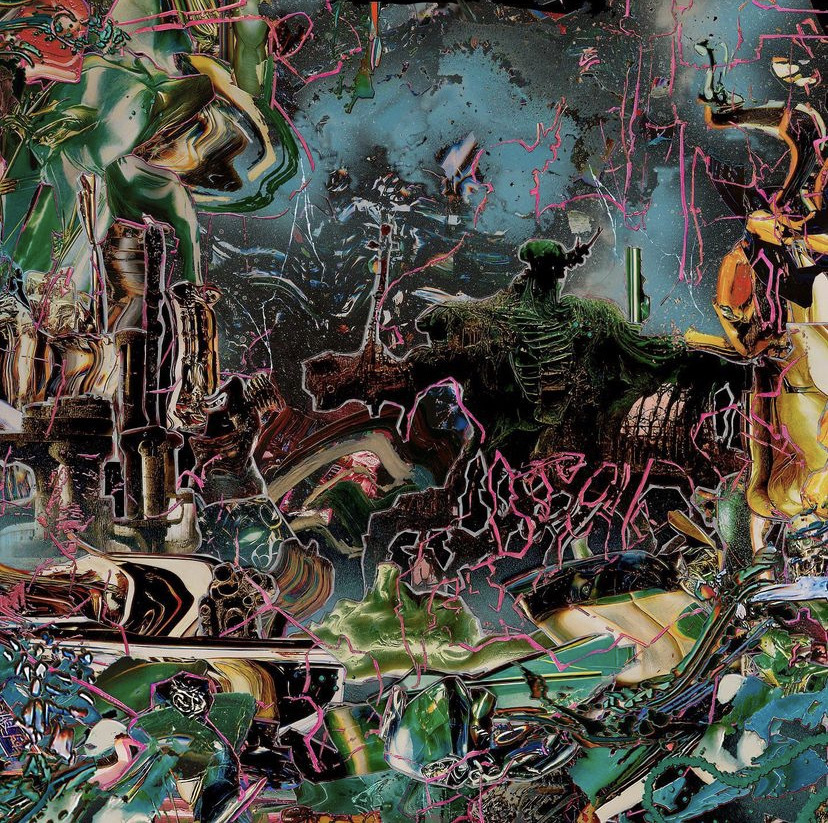Black Midi proves they’re still the best thing happening in prog rock right now
July 28, 2022
British rock band Black Midi continues to embrace the sentiment of experimentation, reinventing the sound of progressive rock, math rock, noise rock, post-punk and many other genres that influence the group’s nonsensical, genre-defying sound. Released July 15, the band’s third studio album, Hellfire, brings fans the mayhem expected from their discography, while also pushing the envelope of their typical songwriting style.
Coming off enormous success and critical praise from the band’s first two major releases, Schlagenheim in 2019 and Cavalcade in 2021, Black Midi seemingly had no intention of abandoning the defining components of their signature sound. Since their conception, Black Midi has dedicated its identity to throwing everything they have at the wall and seeing what sticks, resulting in consistently original products that could be described as anything but boring.
“Welcome to Hell,” the album’s masterful lead single, showcases Black Midi’s ability to create one-off stories within songs based on whimsical and unnerving fictional plots. The song follows Private Tristan Bongo, who is unable to compose himself while facing the brutality of an unknown war. Black Midi frontman Geordie Greep lends the voice of Bongo’s commander, who berates the Private throughout the song’s duration. Greep’s ability to create a captivating combination of satirical and cynical lyrics such as, “To die for your country does not win a war / To kill for your country is what wins a war,” combines with an amazing instrumental that switches from orchestral to primus-inspired to metal, all topped off with an amazing drum breakdown toward the end of the song.
In a collection of high-quality tracks, Black Midi’s “Still” stands out among the band’s entire discography. One of Greep’s most potent and emotional stories from the album comes in the form of a declaration of love. With lyrics like, “I went to see him at the ‘Obviously Visiting’ Arena / You were a mile away but doing so good,” there is much to be left up for interpretation. While trumpet and trombone stand out on this track, moments like the brief breakdown at two minutes that transitions between verses with the sounds of clapping overlaying the guitar and tenor saxophone create a transcendent feeling, matching an orchestral and emotional performance from Greep.
Hellfire finishes strong with two of the best tracks on the album coming as the project’s last one-two punch. The first is “The Defence” — Black Midi’s fictional story of a Christian pimp too concerned with defending his girls to acknowledge his own involvement in their suffering. The track takes full use of rich saxophone, violin and cello arrangements to deliver an ethereal feel cut with a funky synthesizer.
The album’s outro track, “27 Questions,” is one of the most prog-like on the entire album, taking very clear influence from bands like King Crimson and many more who influenced the making of Hellfire. “27 Questions” follows the story of the fictional Freddy Frost in the first five verses recounting his story of life, death and post-modern remembrance. As classic moral questions that have remained unanswered throughout history are listed off, Black Midi uses the moment to give references to past songs, thank their “audience” for listening and call it a night.
Black Midi’s Hellfire exudes so much love, effort and care combined with an acute complexity that comes with any project the group dares to tackle. Black Midi continues to push forward the sound of progressive rock, creating an instant classic that can be analyzed for years.
5 made-up, hopelessly lost and hilariously immoral characters out of 5





